Students get Ready for Life
Calvin College is welcoming students with developmental disabilities in a new way: the Ready for Life Academy. Emily Perton, the program’s executive director, called it “an inclusive college program for students with developmental disabilities.” According to Perton, “These are students who would not necessarily get into Calvin if they applied normally.”
For Perton, the key word there is “inclusion.” She explained why this factor is so important in special education:
“The State of Michigan educates children up to age 26.” There are transitional programs after high school completion. These programs separate students with developmental disabilities from their peers.
“It was a step backwards for many students to go from being fully included with their peers to being only with people with special needs.”
The problem with such programs, as Perton pointed out, is that students miss out on the formative college experience. They do not have the opportunity to build independence and identity the way their peers do.
Ready for Life students often receive a certificate of completion or a diploma track from their inclusive high school.
Coming out of inclusive programs, students began looking forward to college. The question for the students Perton works with became, not “if” they could go to college but “how” and “where”. Students needed an inclusive option for College.
The Ready for Life Academy was established by the Christian Learning Center, a nonprofit with the mission to equip Christian schools to support students with developmental disabilities as well as public schools can. This gives students the opportunity to attend Christian schools as well as public.
The program is entering into its ninth year at Hope College and has now reached capacity at 12 students.
The Ready for Life Academy had a “soft start,” as Perton terms it, at Calvin last semester. This involved implementing the academy’s programs on a smaller scale. Ready for Life has now fully launched with five students, a number which Person hopes will grow to 15 by 2020.
“We have a lot of applications for the next couple of years,” said Perton.
Philip Stegink, an education professor and Calvin’s liaison to the Ready for Life Academy helped to draft the proposal to bring Ready for Life to Calvin’s Campus. According to Stegink, Ready for Life had been at Calvin before, stopping in January of 2012 due to what Stegink called “wrinkles in organization and implementation.” He is excited to see the program’s return and the “gift of awareness” it will bring to the Calvin community.
“Calvin has chosen to partner with the Ready for Life Academy because it fits in Calvin’s strategic plan,” Stegink said. “One of the aspects of this plan is to create a community that represents God’s wonderfully diverse community.”
The students can enroll either full-time or part-time in the program. Full-time students participate for four years attending two classes a semester.
According to Perton, students “have picked classes that interest them but also challenge them in some way.”
Outside these classes, students also participate in life-skills classes, which teach them skills like budgeting, job skills, relationships and personal values.
Students are also expected to attend chapel, eat in the dining hall and participate in social activities and other elements of campus life.
In their sophomore year, students look for job placements. These job placements can be on or off campus and are tailored to each student’s job goals and interests. This year, some sophomores in the program are volunteering with cleaning services. Perton says she is also seeking opportunities for students to volunteer at Johnny’s and Hekman Library.
Off-campus placements could include everything from working in retirement communities to daycares to retail.
The principal goals of Ready for Life are job skills and independent living. In the future, Perton wants to explore the possibility of housing students on campus to encourage independence and confidence.
“Confidence,” she says, “is something many people with developmental disabilities struggle with.”
Perton advocates for treating Ready for Life students as you would any one else. In addition, she listed three kinds of mentors the program is looking for: social mentors, classmate mentors and classroom mentors.
“No matter what field a college student is going into they will interact with people with special needs,” said Perton. “A student who has come away from the Ready for Life program has said, ‘[I] look at accessibility totally differently, and I’m an engineer.’”
“I want to make sure the Calvin community knows how thankful we are,” Perton concluded. “It is a new program and it can be out of people’s comfort zone. Calvin has embraced this program and sees the need for it….That is telling to the amazing place this school is.”
Students interested in participating in Ready for Life should email Amber Gilliland at amber.gilliland@rfl.network.org.




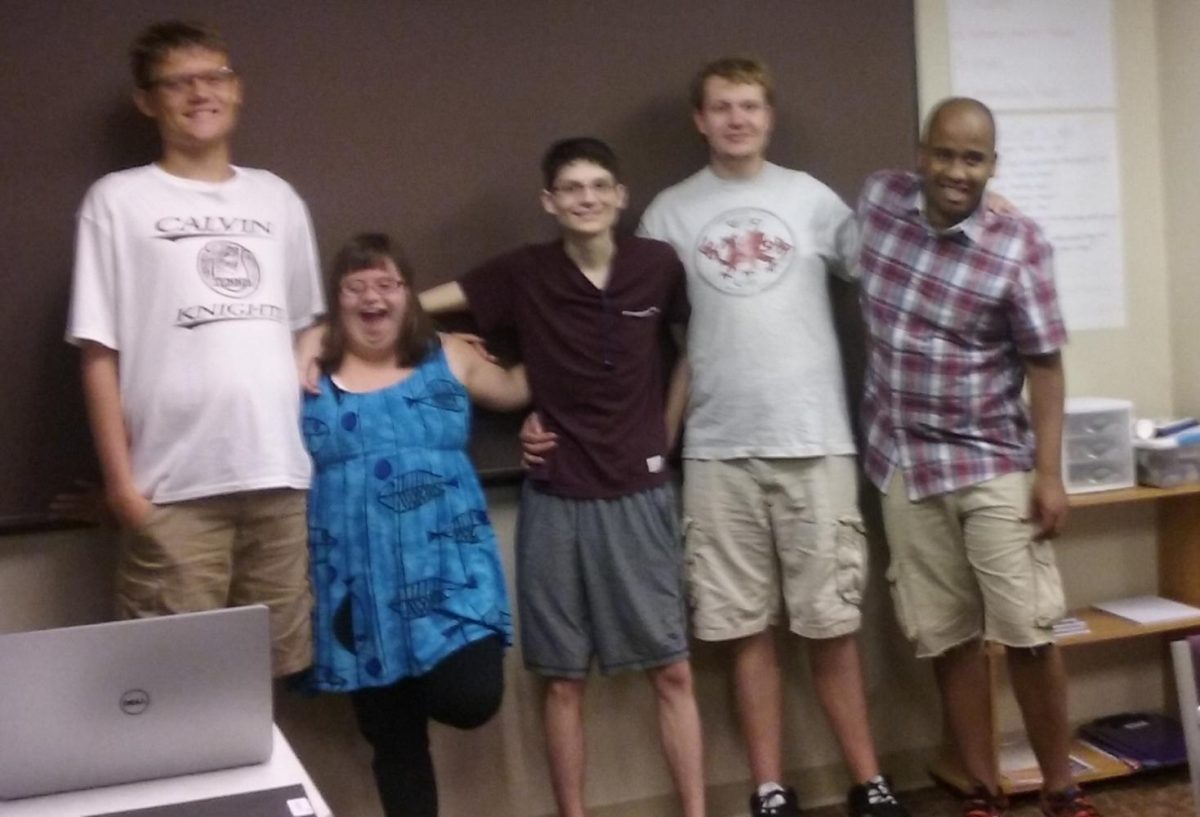
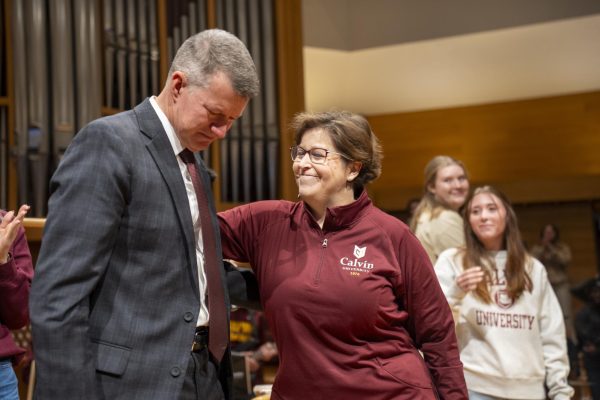
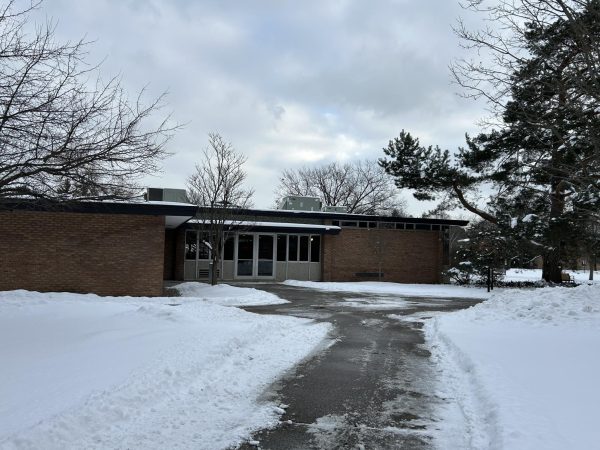
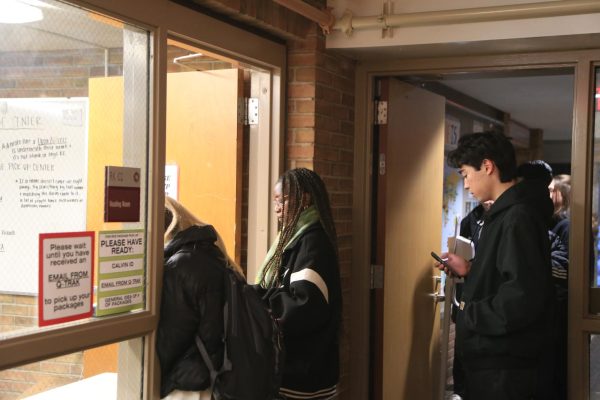
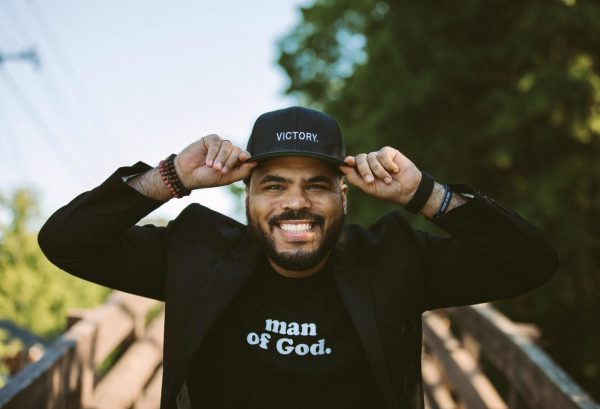
Bart Moore • Dec 29, 2017 at 10:05 am
As the parent of an RFL participant, I will attest that the program has been a lifeline for Dan. My wife and I greatly appreciate Calvin’s acceptance of our young adults into their wonderful community, and for Emily’s and Amber’s skills and guidance